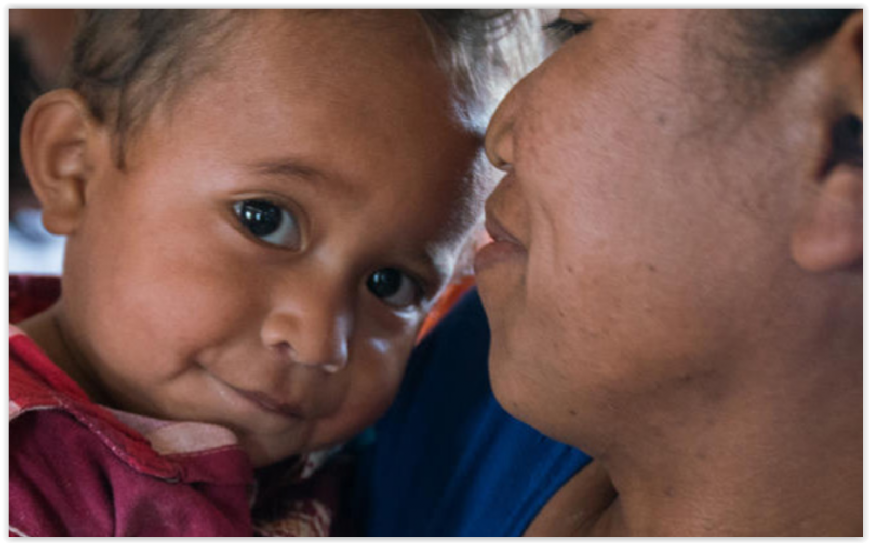Early Childhood Parenting Practices in Indonesia
Parenting practices play an important role in early childhood development. Some literature and ethnographic studies suggest that collectivism, as part of local culture, is crucial in determining parenting practices in Indonesia. However, an inter-cultural study shows that parents’ socioeconomic status has a stronger effect on the matter. The present study aims to examine the determinants of parenting practices in Indonesia, using data from the 2018 Population, Family Planning and Family Development Program Performance and Accountability Survey, a nation-wide survey conducted by the Indonesia National Population and Family Planning Board, with samples of 19,568 mothers of reproductive age who have children under 6 years of age. Parenting practices are measured using 17 items, covering both physical and psychosocial stimulation. Logistic regression was used to determine the predictors of early childhood parenting practices. The findings highlight that early childhood parenting practices are strongly associated with both cultural values and household wealth status. This study underscores the emergence of emotional/psychological interdependence values in Indonesia, characterised by high family integrity, and encouragement to a child’s autonomy and achievement. Our model proposes a family’s economic development and a maximum of two parity, which is important for Indonesian early childhood parenting practices.
Population Review
Volume 59, Number 2, 2020
Type: Article, pp. 139-155
Early Childhood Parenting Practices in Indonesia
Authors: Mardiana Dwi Puspitasari, Aditya Rahmadhony, Sabarinah Prasetyo, Wisnu Fadila
Affiliations: Center for Research and Development, National Population and Family Planning
Board, Indonesia (Puspitasari); Center for Research and Development, National Population
and Family Planning Board, Indonesia (Rahmadhony); Faculty of Public Health, Universitas Indonesia, Indonesia (Prasetyo); Center for Research and Development, National Population and
Family Planning Board, Indonesia (Fadila)
Corresponding author/address: Mardiana Dwi Puspitasari, Center for Research and Development, National Population and Family Planning Board, Indonesia; email: mardianadwipuspitasari@gmail.com
Abstract
Parenting practices play an important role in early childhood development. Some literature and ethnographic studies suggest that collectivism, as part of local culture, is crucial in determining parenting practices in Indonesia. However, an inter-cultural study shows that parents’ socioeconomic status has a stronger effect on the matter. The present study aims to examine the determinants of parenting practices in Indonesia, using data from the 2018 Population, Family Planning and Family Development Program Performance and Accountability Survey, a nation-wide survey conducted by the Indonesia National Population and Family Planning Board, with samples of 19,568 mothers of reproductive age who have children under 6 years of age. Parenting practices are measured using 17 items, covering both physical and psychosocial stimulation. Logistic regression was used to determine the predictors of early childhood parenting practices. The findings highlight that early childhood parenting practices are strongly associated with both cultural values and household wealth status. This study underscores the emergence of emotional/psychological interdependence values in Indonesia, characterised by high family integrity, and encouragement to a child’s autonomy and achievement. Our model proposes a family’s economic development and a maximum of two parity, which is important for Indonesian early childhood parenting practices
Keywords
Parenting practices, early childhood, emotional/psychological interdependence, Indonesia
© 2020 Sociological Demography Press
MLA
Puspitasari, Mardiana Dwi, et al. “Early Childhood Parenting Practices in Indonesia.” Population Review, vol. 59 no. 2, 2020. Project MUSE muse.jhu.edu/article/765805.
APA
Puspitasari, M.D., Rahmadhony, A., Prasetyo, S., & Fadila, W. (2020). Early Childhood Parenting Practices in Indonesia. Population Review 59(2), https://www.muse.jhu.edu/article/765805.
Chicago
Puspitasari, Mardiana Dwi, Aditya Rahmadhony, Sabarinah Prasetyo, and Wisnu Fadila. “Early Childhood Parenting Practices in Indonesia.” Population Review 59, no. 2 (2020) muse.jhu.edu/article/765805.
Endnote
TY – JOUR T1 – Early Childhood Parenting Practices in Indonesia A1 – Puspitasari, Mardiana Dwi A1 – Rahmadhony, Aditya A1 – Prasetyo, Sabarinah A1 – Fadila, Wisnu JF – Population Review VL – 59 IS – 2 PY – 2020 PB – Sociological Demography Press SN – 1549-0955 UR – https://muse.jhu.edu/article/765805 N1 – Volume 59, Number 2, 2020 ER –
Always review your references for accuracy and make any necessary corrections before using. Pay special attention to personal names, capitalization, and dates. Consult your library for more information on citing sources.




